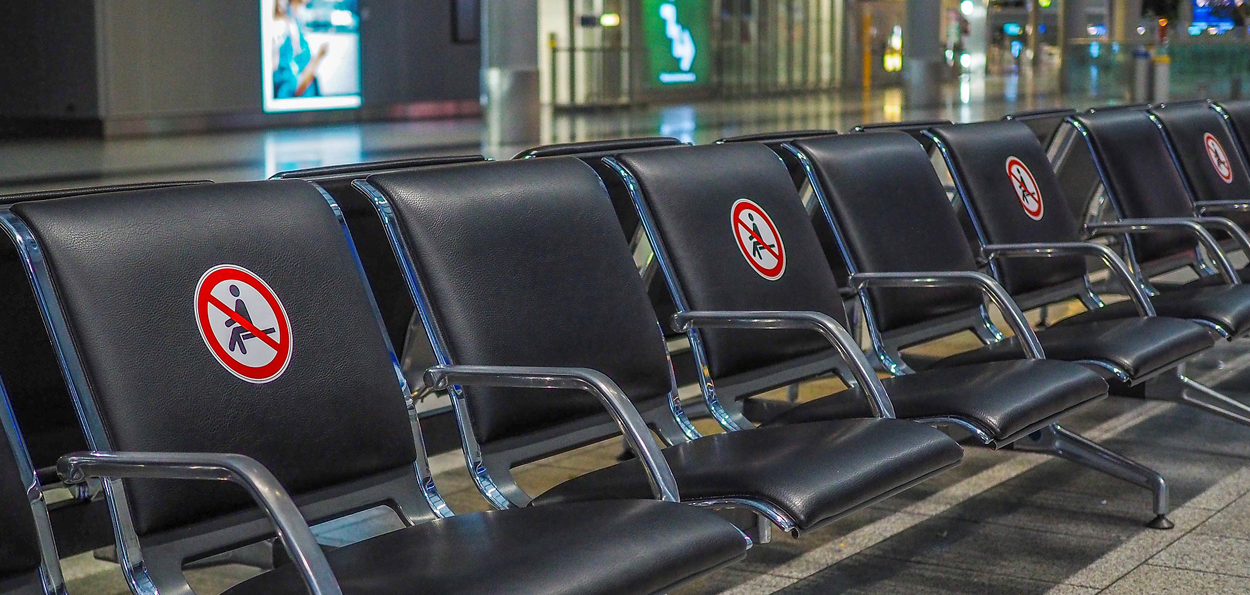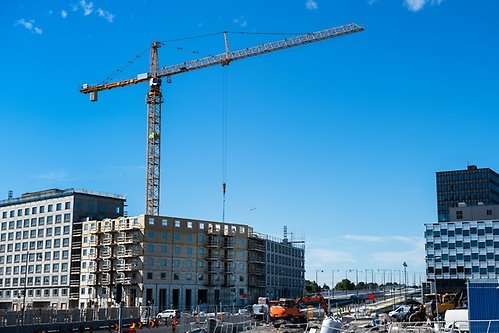
Field: Svensk infrastruktur för innovationsförmåga och näringslivsdynamik
The hospitality industry in the footsteps of the corona pandemic
The hospitality industry has recently been through its worst crisis since the second world war. During the Covid-19 pandemic, 25 per cent of the jobs in the Swedish hospitality industry were lost. Hotel room occupancy by foreign guests dropped by 72 per cent in 2020 and Swedish tourism exports decreased by SEK 80 billion. The numbers speak for themselves, and behind them there are people, companies and a hospitality industry in crisis.
In this report, representatives of the hospitality industry give their views on how the pandemic has affected their industry. We have interviewed 32 hospitality industry representatives in total from all of Sweden’s regions plus some 10 central players in the industry.
The purpose of the report is to capture and relay their opinions on:
- how the pandemic has hit tourism and the hospitality industry
- the Government’s support measures and restrictions and the hospitality industry’s immediate and short-term readjustments
- what the Central government and the public sector can do to facilitate the industry’s more long-term ability to recover and readjust, and strengthen its resilience
We define resilience as the capacity to withstand, adapt to and recover from a crisis or disaster. We divide the concept into adaptive and planned resilience2. Adaptive resilience refers to the measures taken in response to an emergency situation caused by a crisis or shock. Planned resilience encompasses the proactive efforts made before a potential crisis or shock occurs to improve the ability to deal with it in the best possible way. According to earlier research, resilient tourism systems recover faster after shocks. Travel usually reverts to around the same levels as prior to the crisis.
The picture painted by the interviewees of how the hospitality industry has suffered due to the pandemic is neither clear-cut nor homogeneous. Geographic placement in Sweden, the specific sector and the area’s priority target groups all had an impact on the outcome. Sweden’s cities, border areas and more peripherally located areas have been hit hard. Areas of natural beauty located within reasonable driving distances from the majority of the Swedish population have coped significantly better. The respondents note that the flows of visitors have largely reversed. During the pandemic, they have mainly gone from the major cities and the most densely populated areas to more sparsely populated areas. One explanation for this is that visitors have felt that these less populated areas are safer, in terms of the risk of infection.
The government’s support measures and restrictions receive some criticism, even though the support measures have also helped the industry. Criticism mostly centres on the fact that the initiatives have not been adapted to the characteristics and structure of the hospitality industry. The perception is that decision-making politicians and other officials have relatively low knowledge and understanding of the industry. This has reduced the effectiveness of initiatives, according to the respondents. Application processes to receive support are generally described as being administratively challenging.
The immediate response of the hospitality industry to the crisis, and the more short-term readjustment, has mainly involved identifying new target groups and developing new products. They have had to focus on Swedish rather than foreign guests and switch from restaurant businesses to more take-away activities. Other examples of readjustment include smaller groups of visitors, more space between beds, hotel rooms converted into offices and businesses that have moved outside.
Over the longer term, readjustment will require knowledge of future visitors and travellers. It will mean building on the transition to a more sustainable hospitality industry that can balance environmental, social and economic sustainability, as well as the investments and innovation required to achieve this.
In our interviews, the hospitality industry representatives emphasise a range of needs and challenges that we have divided into four main groups:
- Experiences from the pandemic
- Need for knowledge
- Wider business support system
- Prerequisites for continued competitiveness
For more effective policies it is important to evaluate and take advantage of the experiences of the hospitality industry regarding the restrictions introduced and the support measures, not least those provided by the public sector. The respondents emphasise a need to:
- evaluate the restrictions that have impacted the hospitality as well as their consequences
- evaluate the support and easements that the hospitality industry has been able to use
The respondents identify a need for greater knowledge to be able to shape their businesses for future competitiveness and stronger resilience. Knowledge can also serve as a basis for politicians and other officials in decision-making regarding these matters. The kind of knowledge requested includes:
- Business environment analyses, international outlooks and lessons from best practices. Are the changes and preferences we are seeing in the travel habits of Swedes temporary or permanent?
- Development of digi-physical alternatives and hybrid solutions that combine physical and digital meeting places. As an example, the respondents emphasised that knowledge is needed about future business travel and the meetings industry.
- Movement patterns of travellers. The respondents emphasise a need to examine the possibility to use mobile data to increase knowledge about movement patterns of travellers in Sweden.
- Different input from needs analyses prior to decisions about future, long-term sustainable investments/announcements.
- Continued and long-term general knowledge development about the hospitality industry, such as using key performance indicators and available data, as well as better use of soft skills.
The respondents also reflect on the wider business support system for the hospitality industry and highlight that:
- the hospitality industry’s business support system needs to be better defined.
- more geographically equal. Geographic differences are substantial with a variety of regional organisations and functions, and different levels of skills for handling and helping companies. Some respondents suggest a review of the possibilities for equivalent help in times of crisis regardless of the company’s region of location, via functions such as company services and company crisis lines.
Other reflections include:
- the skills drain to other sectors during the pandemic is causing concern regarding the future skills supply
- the need for a higher degree of digitalisation to manage a continuous and long-term transition
- the need for greater diversification to limit vulnerability, both in terms of target customer groups and products
- the importance of the transition to a more sustainable hospitality industry that can balance environmental, social and economic sustainability.
We do not currently have a complete picture of the long-term scars the pandemic will leave on the hospitality industry. However, insight from the respondents provides valuable input for shaping policy measures to support and stimulate the development of the hospitality industry so that it is better equipped for future crises and shocks.
Publicerad:
The hospitality industry in the footsteps of the corona pandemic
Serial number: Rapport 2021:08
Reference number: 2021/72
Download the report in Swedish Pdf, 1.4 MB.


